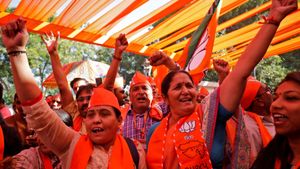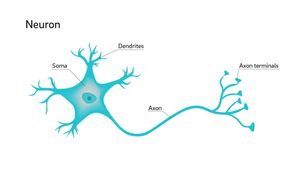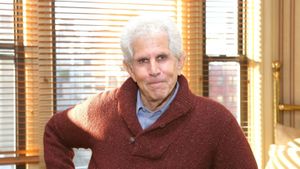Lieke Marsman, the acclaimed Dutch poet and writer, is not just grappling with the demands of literary expression; she is also facing the harsh realities of living with cancer. Her new book, Op een andere planeet kunnen ze me redden, due for release next week, combines essays and diary excerpts, charting her experiences with illness and her navigation through thoughts about life and death.
During her formative years, Marsman was shaped by her upbringing in Zaltbommel, Netherlands, where her parents encouraged intellectual curiosity; her father worked as a child psychologist and her mother as a Dutch teacher. After studying philosophy at the University of Amsterdam, she gained prominence at just twenty with her debut poetry collection, Wat ik mijzelf graag voorhoud, which earned her several prestigious awards. Over the years, her poetry evolved, with initial themes of love and fear transforming as she became the Dutch Poet Laureate, tackling more pressing issues such as climate activism and politics. But the most significant shift came when she was diagnosed with chondrosarcoma—a rare form of cartilage cancer—seven years ago.
The diagnosis came after she sought medical help for severe shoulder pain, which was initially mistaken for serious repetitive strain injury. Following surgery to remove the tumor, Marsman found herself dealing with unexpected metastases discovered in her lungs years later, drastically changing her prognosis from hopeful to grim. Now, at 34, she describes her experiences not just as reflections of struggle, but as material for her writing. “I talk about what concerns me; I express it whether I want to or not,” she remarked, emphasizing the blend of her personal and professional narratives.
Speaking about her relationship with her illness, Marsman revealed, “I know I’m going to die; I’m certain of it, but I’m going to do it on my terms.” This fierce determination propelled her through various treatments, including chemotherapy, radiation, and multiple surgeries, even leading her to participate in clinical trials to explore potential new therapies. Her persistent pursuit of experimental procedures reflects her belief in taking control over her fight against cancer. “Quality of life,” she argues, “is always the reason doctors use to cease treatment, but I felt empowered when doing something against my illness, even amid pain. It gave me purpose.”
Intriguingly, her book touches upon universal human themes such as mortality. Marsman openly discusses her struggle with the concept of terminal illness and rejecting the expected notion of acceptance. “We are expected to come to terms with our impending death and to enjoy the time left, but I’ve never felt acceptance,” she stated. “To accept my fate feels antithetical to my very nature.” Her candid expression both confronts societal expectations of how terminal illness should be handled and asserts her individuality against them.
After undergoing the amputation of her right arm and shoulder—despite initial recommendations against the procedure—Marsman has emerged with newfound strength. “What good is being whole if you’re dead?” she wrote, illustrating her perspective on enduring physical changes to claim her own autonomy. Even as many view losing part of one’s body as tragic, Marsman finds strength and empowerment within her choice.
Marsman is acutely aware of the public interest surrounding her cancer. She has noted the seemingly obsessive nature of search engine inquiries about her prognosis, reflecting both curiosity and discomfort. “It feels strange,” she admitted, laughing at the irony of such speculation about her life and death. Yet, she embraces the scrutiny with candor, seeing it as part of her role as both author and patient.
Her philosophical engagement with death is evident throughout her works. Marsman penned her thoughts on life's inexplicable nature, even touching upon theology and extraterrestrial life within the new book. Such explorations represent her desire to understand not only her existence but also the connection of humanity within the broader cosmos. She laughs off the skepticism surrounding her newfound beliefs, including her interest in aliens and other mystical elements. “It was such taboos at first, but why should I stop myself from believing?” she stated passionately. “It brings joy to my life and helps me forge connections beyond the materialistic world.”
The societal reaction to illness has also been challenging for her. Marsman observes broader trends, noting how discussions around death during the COVID-19 pandemic revealed discomfort with vulnerability. “There was pressure to embrace mortality, but I don’t want to go quietly; I want to fight, continue to live, and embrace every experience,” she articulates, having lost friends who could not face her reality. Her narrative fosters empowerment—not just for herself, but for anyone facing similar battles.
Ever the poet, she expresses the varying ways individuals respond to their mortality. She captures the essence of living with uncertainty and hope—shunning passive acceptance for active engagement with life. Nevertheless, she acknowledges the toll these experiences can take. “On difficult days, the flood of worries pours forth, but the ‘maybe’ is what keeps me hopeful; it’s these possible outcomes and opportunities yet to be realized,” she explained.
Through her work, Marsman seeks to inspire others. Her latest book is not merely about cancer; it is also about love, loss, and the whimsical edges of life. No longer resigned to the shadows of her condition, she finds vibrant narratives within her days. “Though I grapple with what lies ahead, I cherish what I still have,” she concludes, illustrating her tenacity. Although the realities are grim, Marsman finds poetry and purpose even amid struggle, offering hope to both herself and others.
With her vibrant spirit, Lieke Marsman continues to craft lasting impressions, not only through her words but also through her example as she navigates the complex interplay of life, death, and the narratives we shape around them.



